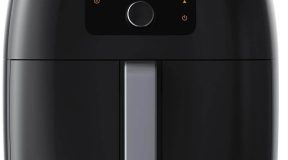
Coffee is one of, if not, the most consumed drink worldwide. Even if you live in a place where people typically drink more tea, if you are viewing this article, you probably like coffee, or at least you’re considering drinking it.
I happen to be a coffee person. And, the truth is, it is addictive. However, coffee has a lot of benefits, some of which you might not know.
It might be surprising to know that a cup of coffee doesn’t put an average, utterly healthy person at risk of developing heart disease.
On the contrary, coffee is beneficial for your heart, liver, cognitive functions, and studies show that it decreases the risk of developing cancer.
Overconsumption is the issue. Trust me, some days, there’s nothing as delightful as that aroma, and if you are a coffee person as well, I’m sure you feel the same.
Discussing coffee and how it affects our entire bodies remains tempting. Yet, in this article, I will only talk to you about how coffee affects your blood pressure.
How Long Have You Been Drinking Coffee?
Someone who just started consuming coffee will experience a much stronger response. However, caffeine is addictive. You start with one cup of coffee per day. Next thing you know, you are having three, and a lot of us have overdosed before.
How Often Do You Drink Coffee?
The best thing to do is not to exceed two cups a day. It is even better if you don’t drink any coffee near your bedtime.
How Does Coffee Affect Your Blood Pressure?
When it comes to coffee, you can break down the effect on blood pressure into two parts which are: an immediate transient effect and a more persistent one.
Let’s dive into each of these on its own, shall we?
Transient, Short-Term Effect of Coffee
You heard the rumor! Coffee does increase your blood pressure from the moment you start taking your first sips.
This rise in pressure happens to everyone who drinks coffee. Whether you have normal blood pressure or you have pre-existing hypertension, the short effect of drinking a cup of coffee is pretty much the same.
However, this increase in blood pressure is about eight mmHg when it comes to systolic blood pressure and six mmHg when it comes to diastolic blood pressure. This spike may stay for up to 3 hours after consuming a cup of coffee.
Scientists believe the reason behind this is that caffeine blocks the effect of some hormones that are responsible for vasodilation. Yet, some researches show that coffee increases your adrenalin, which in return causes your blood vessels to contract, i.e., vasoconstriction.
Despite the mechanism, the result is that it leaves your blood vessels narrower than average; thus, blood struggles more to circulate your body, your heart rates go up, and your blood pressure increases.
To give you a clearer picture, think of what happens to the pressure of water coming out of a hose when you press on it.
Nevertheless, this increase is only mild to moderate and usually happens to someone who doesn’t often drink coffee.
The Long-Term Effect of Coffee
Fortunately, the rumor that coffee causes long term hypertension is only a rumor. On the contrary, as we have mentioned above, it’s healthy to drink coffee.
In the long run, your body becomes more tolerant, and hence, drinking a cup of coffee doesn’t affect you as much.
If you are someone who has controlled hypertension, your doctor should decide if it is okay for you to consume coffee or if it is better to cut it out.
However, most of the time, it is okay to have a daily cup of coffee while you take your medications on time.
On the other hand, if your blood pressure is currently high, it’s only sensible not to drink coffee. This is only a precaution to avoid the short term increase when your blood pressure is already high. Instead, seek medical help to lower your blood pressure and keep it controlled.
Also, if your blood pressure fluctuates, avoid drinking caffeinated drinks before physical activities that increase your blood pressure.
Conclusion
Coffee is blamed for causing high blood pressure when, in fact, drinking coffee is beneficial. The increase in pressure caused by coffee is only temporary and if it wears off with time because of tolerance. Yet, if you have any heart diseases, you should consult your doctor about drinking caffeinated beverages.
Enjoy your coffee, so do we!





